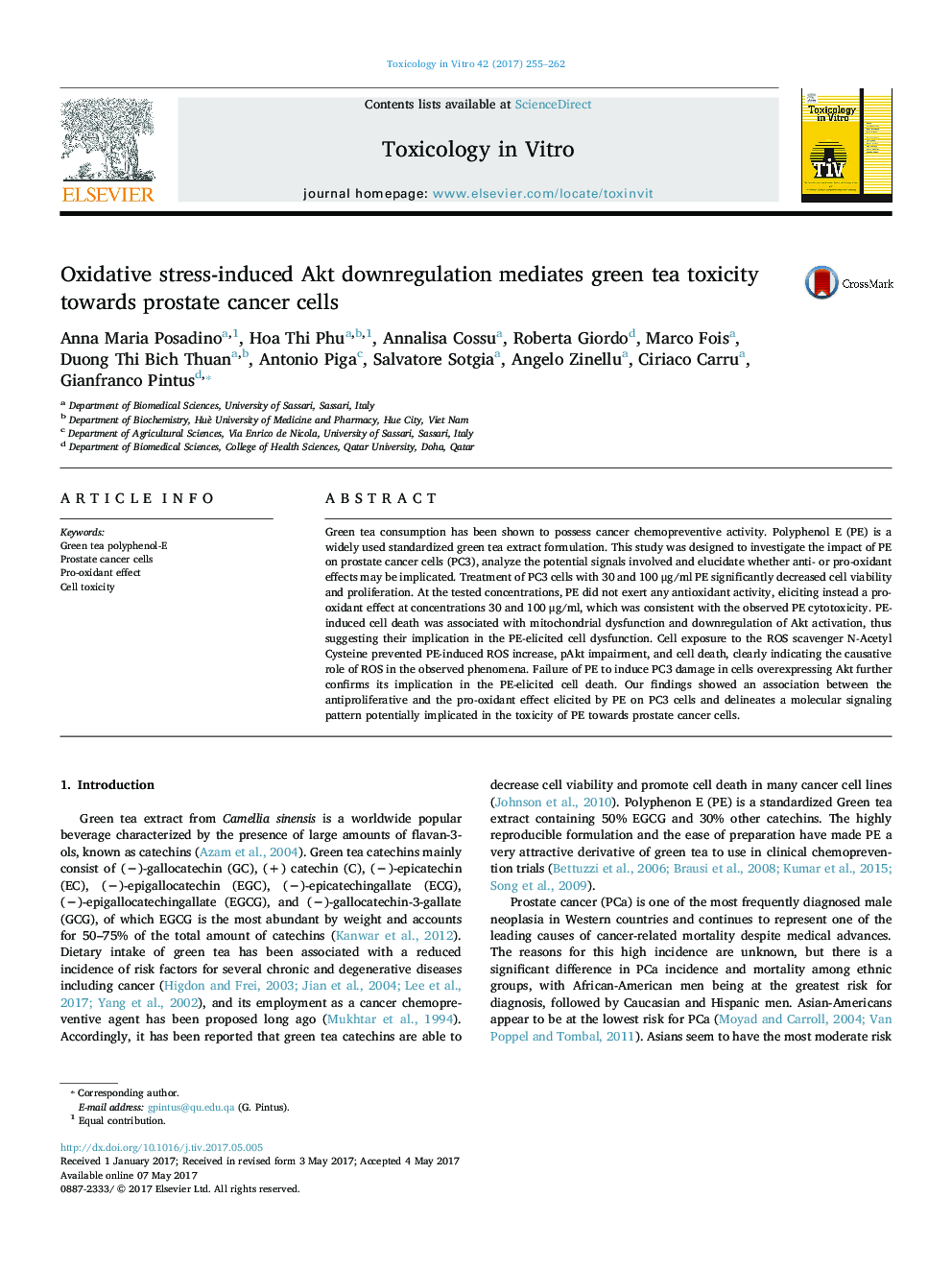| کد مقاله | کد نشریه | سال انتشار | مقاله انگلیسی | نسخه تمام متن |
|---|---|---|---|---|
| 5562619 | 1562703 | 2017 | 8 صفحه PDF | دانلود رایگان |
- Green tea standardized extract Polyphenon E inhibits prostate cancer cells growth.
- Polyphenon E induces intracellular oxidative stress and inhibits Akt activation.
- Forced Akt activation counteracts Polyphenon E-induced cell death.
- ROS scavenging restores Akt signaling and prevents Polyphenon E-induced cell death.
Green tea consumption has been shown to possess cancer chemopreventive activity. Polyphenol E (PE) is a widely used standardized green tea extract formulation. This study was designed to investigate the impact of PE on prostate cancer cells (PC3), analyze the potential signals involved and elucidate whether anti- or pro-oxidant effects may be implicated. Treatment of PC3 cells with 30 and 100 μg/ml PE significantly decreased cell viability and proliferation. At the tested concentrations, PE did not exert any antioxidant activity, eliciting instead a pro-oxidant effect at concentrations 30 and 100 μg/ml, which was consistent with the observed PE cytotoxicity. PE-induced cell death was associated with mitochondrial dysfunction and downregulation of Akt activation, thus suggesting their implication in the PE-elicited cell dysfunction. Cell exposure to the ROS scavenger N-Acetyl Cysteine prevented PE-induced ROS increase, pAkt impairment, and cell death, clearly indicating the causative role of ROS in the observed phenomena. Failure of PE to induce PC3 damage in cells overexpressing Akt further confirms its implication in the PE-elicited cell death. Our findings showed an association between the antiproliferative and the pro-oxidant effect elicited by PE on PC3 cells and delineates a molecular signaling pattern potentially implicated in the toxicity of PE towards prostate cancer cells.
90
Journal: Toxicology in Vitro - Volume 42, August 2017, Pages 255-262
